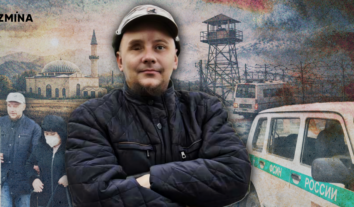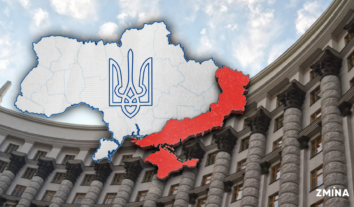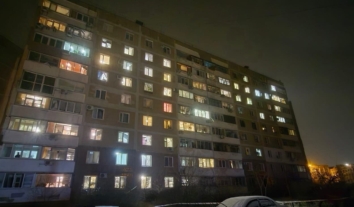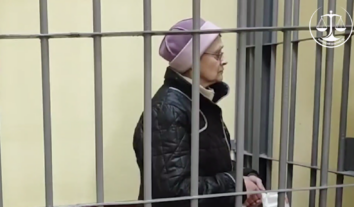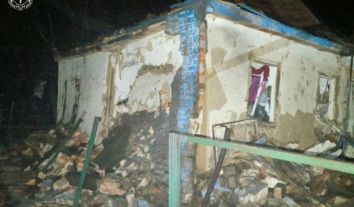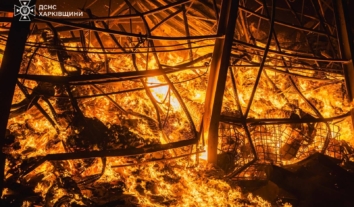Constitutional amendments on judiciary: Five errors of Poroshenko
The human rights activists have noted several flaws in the presidential draft amendments to the Constitution of Ukraine on the judiciary.
The experts say that some of the provisions of the draft, which has already been submitted to the Constitutional Court, should be changed. In particular, the changes should refer to the recognition of the jurisdiction of the international courts, filing a constitutional complaint, the reform of the prosecutor’s offices and the Bar, as well as to the replacement of judges.
Three years without The Hague?
Chair of the Board of the Center for Civil Liberties Oleksandra Matviychuk reminds that ratification of the Rome Statute of the International Criminal Court is an international legal obligation of Ukraine in accordance with Article 8 of the EU-Ukraine Association Agreement. However, the government has failed to ratify the Stature for the two years of its work.

The draft constitutional amendments, proposed by the President of Ukraine, stipulate that the provision, which eliminates the obstacles to ratification of the Rome Statute, should enter into force only three years after the adoption of the changes.
“We all know that the constitutional process is rather long and, therefore, the ratification of the Rome Statute may be delayed. However, the irrational and in no way reasonable postponement of the entry into force of this provision for three years have puzzled us,” the expert says.
Ukraine has already lodged the second declaration to the International Criminal Court, and the Court has begun to study the situation in Crimea and Donbas. Therefore, Matviychuk does not understand the reasons for this delay by the authorities. Ukraine may withdraw this declaration, but that would mean renunciation of any European aspirations and opportunity for a rematch of the undemocratic forces.
The draft constitutional amendments call into question establishment of the so-called hybrid tribunals, being discussed by the politicians recently. The wording of the constitutional amendments does not provide for the establishment of such tribunals. It does not even stipulate the attracting of a foreign component since the judges may be only the citizens of Ukraine, Oleksandra Matviychuk reminds.
At its meeting yesterday, the Foreign Affairs Committee of the Verkhovna Rada of Ukraine unanimously decided to start collecting signatures for amending the presidential draft not to delay the Rome Statute ratification for three years. The human rights activists call on the MPs to support this initiative.
As Head of the Human Rights Information Center Tetiana Pechonchyk noted, Europe actually did Ukraine a favor by signing the Association Agreement despite non-ratification of the Rome Statute.
According to the expert, the establishment of the hybrid tribunals is important for investigating various crimes.
“It may be not only the MH17 tribunal but also, for example, the international criminal tribunal for the crimes of Communism, which did not take place. However, it is obvious that from the point of view of history and the events which took place, such a trial would be very important,” Tetiana Pechonchyk notes.
How to challenge the law?
Volodymyr Yavorsky, the member of the Ukrainian Helsinki Human Rights Union, highlights the importance of the issue of constitutional complaint.
“We have a paradoxical situation in Ukraine: people have no defense mechanisms when the Parliament passes an unconstitutional law. People cannot resort to an ordinary court, as it does not address the question of the constitutionality of laws, and cannot resort to the Constitutional Court,” the human rights activist says.
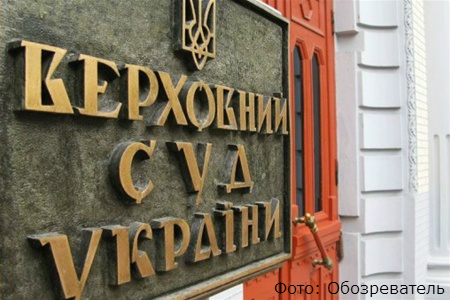
He notes that, for example, “the laws of January 16” were brutal not only due to their content but also because of the fact that people could either obey them or start a revolution, having no legal protection mechanisms.
The amendments to the Constitution contain the wording, which the expert describes as rather strange. It stipulates that a person may lodge the constitutional complaint only if “all the national remedies have been exhausted.” This phrase, taken from the European Convention on Human Rights, is legally illiterate as it should refer to all the effective means.
In addition, the expert suggests stipulating the ability of the Supreme Court to interpret the constitutionality of the laws. The constitutional amendments deprive the Constitutional Court of this right but it is unclear whom these powers are transferred to.
What should be done with judges, prosecutors, lawyers?
In addition, the constitutional changes do not provide for the objective criteria for re-assessment of judges and a judge becomes dependent on a person, who carried out the assessment and kept a judge in office. Yavorsky says that the constitutional amendments should instead provide for dismissing of all judges of higher courts and transferring them, for example, in the courts of the lower level. Meanwhile, the judges of the higher courts should be appointed under the new procedure, thus starting the renewal of the judiciary.
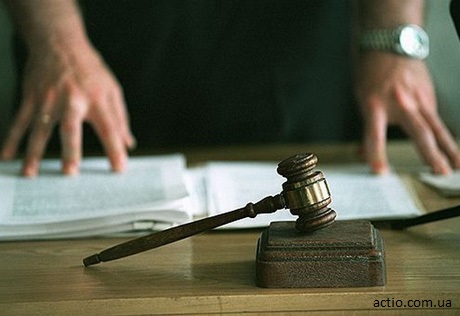
According to Tetiana Pechonchyk, the reform of the prosecutor’s office is not actually stipulated in the constitutional amendments: “The proposed amendments to the Constitution do not indicate the indexes for the conduct of reform, and we see this system further cementing and preserving under the leadership of Victor Shokin.”
Arkadiy Bushchenko, the Executive Director of the Ukrainian Helsinki Human Rights Union, says that the prosecutor’s office, established over 200 years ago, remains almost unchanged.
“There is no place for the prosecutor’s office in the Constitution. It is a particular government agency, which must perform certain functions. These draft constitutional amendments contain no change in the approach to the prosecutor’s office,” Arkadiy Bushchenko says.
The alternative draft amendments, prepared by the Reanimation Package of Reforms initiative, propose to remove all the references to the prosecutor’s office in the Constitution and to set up the Public Prosecution Service. Bushchenko believes that this body should be a part of the government.
The government, the President, and the state, in general, have limited opportunities for reforming the prosecutor’s office as the Constitution provides a rather tough description of what it should be, he says.
Moreover, Arkadiy Bushchenko notes that the constitutional amendments actually provide for the monopoly of the legal profession and create problems in the system of free legal aid. The amendments indicate that only lawyers shall defend people within the trial. The expert is concerned that the amendments will be enshrined in the Constitution and it will be difficult to change them.
Oleksandra Matviychuk suggests stipulating some important changes not in the Constitution but in so-called “organic laws”. Their adoption also requires two-thirds of MPs voting, but these laws do not need such a long approval process, including lodging of the appeal to the Constitutional Court, as the constitutional amendments.

